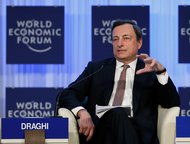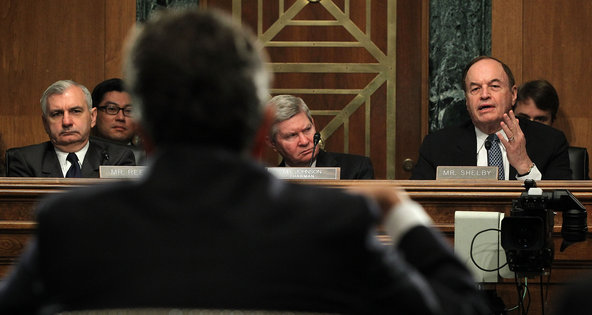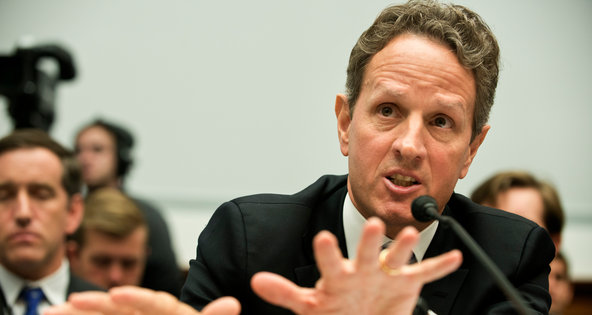“The picture seems to be better from all angles than it was a year ago,” Mr. Draghi said at a news conference after the E.C.B.’s decision to leave its benchmark interest rate unchanged at a record low of 0.5 percent.
Mr. Draghi was referring to questions about the euro zone’s integrity, though, and less to the immediate prospects for an end to recession and record unemployment.
The fragile state of the euro zone economy means that any decision to raise interest rates is still a long way off, Mr. Draghi indicated. Policy makers expect “the key E.C.B. interest rates to remain at present or lower levels for an extended period of time,” Mr. Draghi said, repeating a pledge he first made a month earlier.
In London on Thursday, Britain’s central bank, the Bank of England, also decided to hold interest rates steady.
The Bank of England held its interest rate at 0.5 percent, already a record low, and made no change to its program of economic stimulus, leaving the target at £375 billion, or about $570 billion. In Britain, which does not use the euro, the government had reported last week that the economy grew 0.6 percent in the second quarter from the previous quarter and that all main industries were reporting faster growth for the first time in three years.
For Mr. Draghi, it has been about a year since he defused fears of a euro zone breakup by promising to do “whatever it takes” to keep the common currency together. That expression of resolve helped check the euro zone’s decline, but was not enough to push the region onto a growth pathagain.
Asked to take stock of the state of the euro zone today, Mr. Draghi listed numerous improvements, including stronger exports from countries like Spain and Italy; lower market interest rates for government bonds; and progress by political leaders in reducing their deficits and improving economic performance.
“We are seeing possibly the first signs this significant improvement in confidence and interest rates is finding its way to the economy,” Mr. Draghi said.
But he took a more cautious view than many analysts of recent surveys of business sentiment, which have raised hopes that the euro zone economy could be emerging from recession. The surveys “tentatively confirm the expectation of a stabilization of economic activity at low levels,” Mr. Draghi said.
At least one analyst detected a nuanced shift in Mr. Draghi’s assessment.
“If there was any change at all, his description of economic prospects sounded slightly more optimistic,” Jörg Krämer, chief economist at Commerzbank in Frankfurt, said in a note to clients.
“Slightly” is the key word. Credit for businesses remains scarce, Mr. Draghi noted, and the labor market is weak. Unemployment in the euro zone was stuck at a record high of 12.1 percent in June, according to official data published Wednesday, though there was an infinitesimal decline in the total number of jobless people: 24,000 fewer people were out of work in May out of a total of 19 million.
Even if the euro zone economy does emerge from recession soon, economists say, growth will be weak and it will take years before joblessness in countries like Spain — where more than a quarter of the work force is unemployed — returns to tolerable levels.
With E.C.B. interest rates already at record lows, Mr. Draghi has in recent months been trying to use his powers of persuasion to talk down market rates and make credit more available to businesses and consumers. Last month, he broke with precedent by promising to keep rates low for an extended period. Before then, the E.C.B. had refused to offer so-called forward guidance.

Julia Werdigier contributed reporting from London.
Article source: http://www.nytimes.com/2013/08/02/business/global/european-central-bank-keeps-key-rate-at-0-5.html?partner=rss&emc=rss




